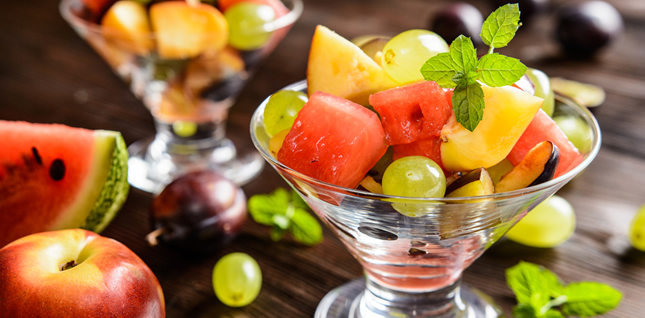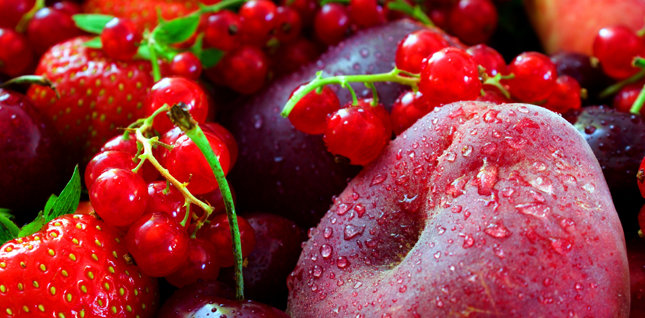
Do you know anyone that is constantly eating fruit and they can’t figure out why they can’t lose weight? Maybe you’re one of these people?
Many people think that any food that is “natural” is good for you. It is a myth that just because something exists in nature, it is good for you. For example, poison ivy is “natural” and it’s definitely not good for you.
Of course fruit isn’t poison in the same way that poison ivy is poisonous, but, too much fruit – especially in the wrong form – can cause big blood sugar spikes followed by big insulin spikes and you already know this is a bad combination.
Yes – it’s the perfect combination for enhancing fat-storage on your body.
Fructose
Before you start pulling all of the fruit out of your fridge or off of your cupboards, let’s take a look at if any fruit is good for you.
You may have heard of the word “fructose.” Fructose is a simple sugar found in many plants, not just fruit. Fructose is one of the three most basic units of carbohydrates – the other two basic units are glucose and galactose.
You might be surprised to know that fructose is found in the most concentrated form in molasses, tapioca syrup, honey, agave and all of the high-fructose sweeteners made from corn.
Juice
If you eat a piece of fruit, the fruit has a combination of sugars and other, more complex, carbohydrates – including dietary fiber. Dietary fiber is not easily digested by the body and this is a good thing. Fiber slows down the absorption of sugar into the body and decreases the blood sugar and insulin spikes.
Fruit juice, on the other hand, is void of dietary fiber and is very easily and quickly absorbed by the body. This can spike blood sugar, which spikes insulin. Fruit juice puts a blood sugar load on your body, three times that of whole fruit. You can think of fruit juice as liquid sugar.
Dried Fruit
With all of the water removed, dried fruit is very concentrated sugar. More often than not, dried fruit is coated in additional sugar and sometimes unhealthy fats too. It is very easy to over-consume a portion of carbohydrates with dried fruit. For example, 20 whole grapes take up a sizeable volume of space. Twenty raisins barely look like a serving size.
Because of the concentrated form of sugar and added sugar coating, dried fruit puts a big blood sugar load on your body.
Whole Fruit
Now you know why you should avoid fruit juices and dried fruit, does that mean you should avoid whole fruit? No.
How about eating unlimited quantities of whole fruit? No.
All fruits are very high in carbohydrates and low in fat and protein. You can have limited quantities of fruit as part of your Fat-Burning Machine program – but don’t get carried away.
That written, some people – like Mike – find that they are particularly sensitive to fruit and must keep quantities very, very low.
How do you know if you’re one of the fruit-sensitive people? Take note of how you feel after consuming fruit. Are there any patterns? Some people won’t notice anything. Others, will find that consuming fruit makes them feel very hungry a short while after eating all fruit or just particular fruits.
This hunger is one way your body signals you that you’ve had a blood sugar spike followed by an insulin spike.
Do Studies Show Fructose is Poison for Health?
There have been studies that show health concerns for fructose in liquid form. After scouring the research papers, I did not find a single study that linked the consumption of whole fruit to any negative health issues. In fact, I found quite the opposite.
Consumption of whole fruits and vegetables is linked with better blood profile numbers as well as lower fasting glucose values and better insulin management.
Healthy Consumption
Fruit is natural, but that doesn’t mean you can consume unlimited quantities of it because all fruits contain a relatively high amount of naturally-occurring sugar. Avoid fruit juice and dried fruit, because both have a bigger negative effect on your blood sugar than does whole fruit.
The list of low, medium and high sugar fruits can be found in the book, Become a Fat-Burning Machine.

